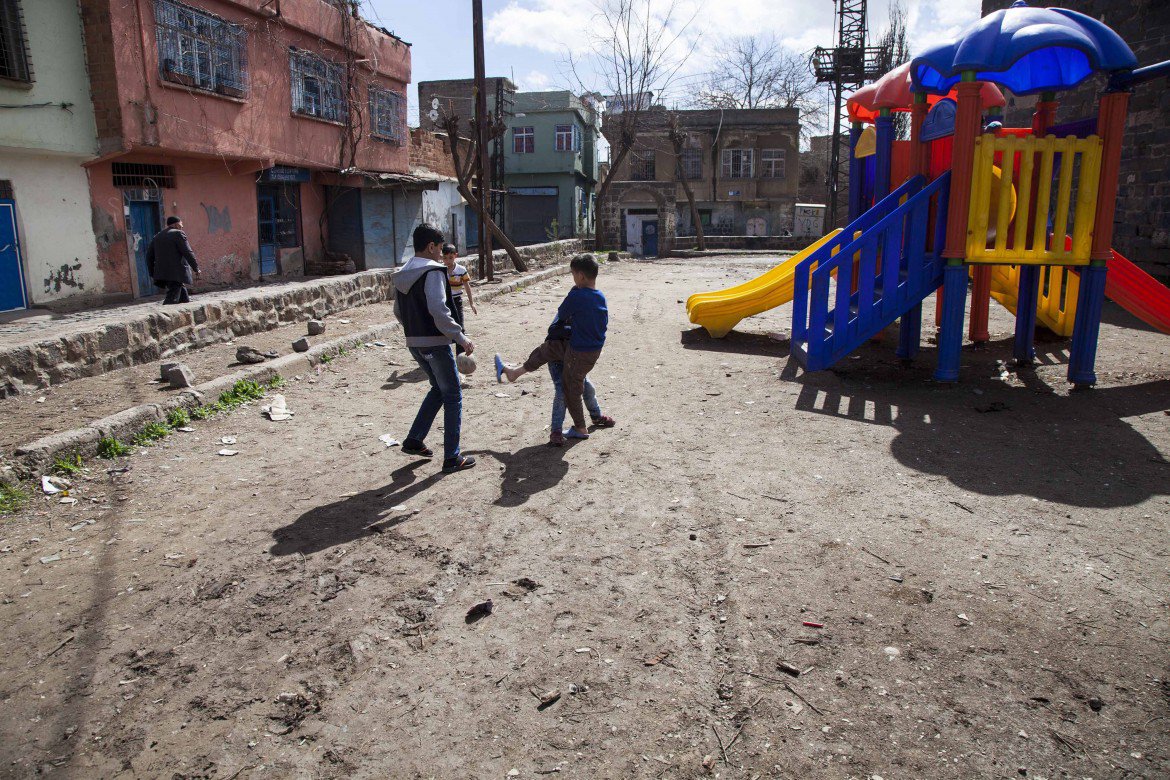Commentary
The Turkish coup destroyed the secular and republican opposition
The chaos of post-coup Turkey has been most devastating for the HDP, which advocates for peace but is totally excluded from politics.

On Feb. 28, 1997, the so-called Islamist-liberal government was overthrown after a military threat campaign that blocked parliamentary activities and mobilized the secular and nationalist opposition, including trade unions and leftist groups. It was a non-electoral collapse of a conservative-liberal coalition that opened the way for a “moderate Muslim” power in favor of economic globalization. “A post-modern state coup”: This was the diagnosis of the Turkish intelligentsia.
On July 15, 2016, one of the busiest bridges in the world in one of the most populated cities in the world was closed by a small group of foot soldiers; after hours of hustle and bustle continued until sunset, it ended with the lynching of an opposing crowd. A warplane flew at low altitude, doing stunts in the sky of the Turkish cultural capital. The soldiers tried to take control of the state TV and radio stations, while Turkish CNN broadcasted the appeal of the president of the Republic to the citizens asking them to resist.
The Turkish intelligentsia is still debating it: Was this a pre-modern or post-modern coup? The tragedy is that both were real coups. Both were welcomed by the U.S., and both ended with a new diplomatic and strategic balance with the global forces.
The Kurds in Turkey have learned later that the commander in chief of the “second army,” General Adem Huduti, the one who ordered the bombing of the old city of Sur in Diyarbakir, and the bombing of Yüksekova and Cizre, was part of the coup and he was arrested. So, here in Diyarbakir, we still ask who is responsible for the immeasurable destruction of our cities. This is the reason for the Kurds’ hesitation, not knowing what the best approach against the consequences of the failed coup is.
Should this diabolical experience force the political elite to reconsider the conflict? Can we expect that this coup — against all the parties in Parliament, including the HDP — is a lesson of wisdom? Unfortunately, no. Two figures in particular may help us to understand why we have no right to express a limited optimism. Forty-one liberal professors, among those who signed a declaration in favor of a peaceful solution to the Kurdish question, are now accused of being Gulen’s followers. A number that far exceeds the number of ISIS militants arrested in Turkey. And how could one compare an ISIS member wounded during the military operations of the Turkish army in northern Syria with hundreds of YPG and YPJ fighters killed and tortured?
Twenty-four soldiers were killed in clashes with the PKK in 48 hours last weekend, but none of the five most popular Turkish newspapers reported it on its front page. In the last 30 days, 37 children were killed in air raids and clashes in the Kurdish cities and no political commentator spoke about it.
Not even as a “collateral damage.” The elimination of Gulen’s supporters in the army and in the police force could have created the fertile ground for a new political solution to the Kurdish cause, since the military has been the real enemy of the Kurdish politicians, the elected mayors and the civilian population. But once again the opportunity was lost. After all, these are the same ones who would have to judge the 2009 and 2015 nationalist Ergenekon groups, who today are all free and legitimate.
The reason lies in the division into two groups of anti-Kurdish militant forces: the majority collaborates openly with the AKP; a losing minority cooperated with Gulen’s followers. Both groups operate, according to their logic, for the survival of the state.
I believe the ability of the AKP’s leadership to redirect the course of events in the days following the coup led to a weakening of the myth of “Erdogan-style moderate Islam” as an alleged cultural bridge between the conservative, nationalist tradition and universal democratic values. It also destroyed forever the potential republican and secular opposition to the sovereignty of the AKP, because that opposition has shown no sign of resistance to the coup nor to the anti-Kurdish blitzkrieg.
And finally, the ultimate loser in this chaos is the HDP as an advocate of peace, totally excluded from the political arena and forced to survive in purgatory, between a reformed militaristic regime and the Kurdish armed forces, on both sides of the Turkish-Syrian border.
Murad Akincilar is the director of the Diyarbakir Institute for Political and Social Research.
Originally published at http://ilmanifesto.info/il-golpe-ha-distrutto-lopposizione-laica-e-repubblicana/ on 2016-09-08
